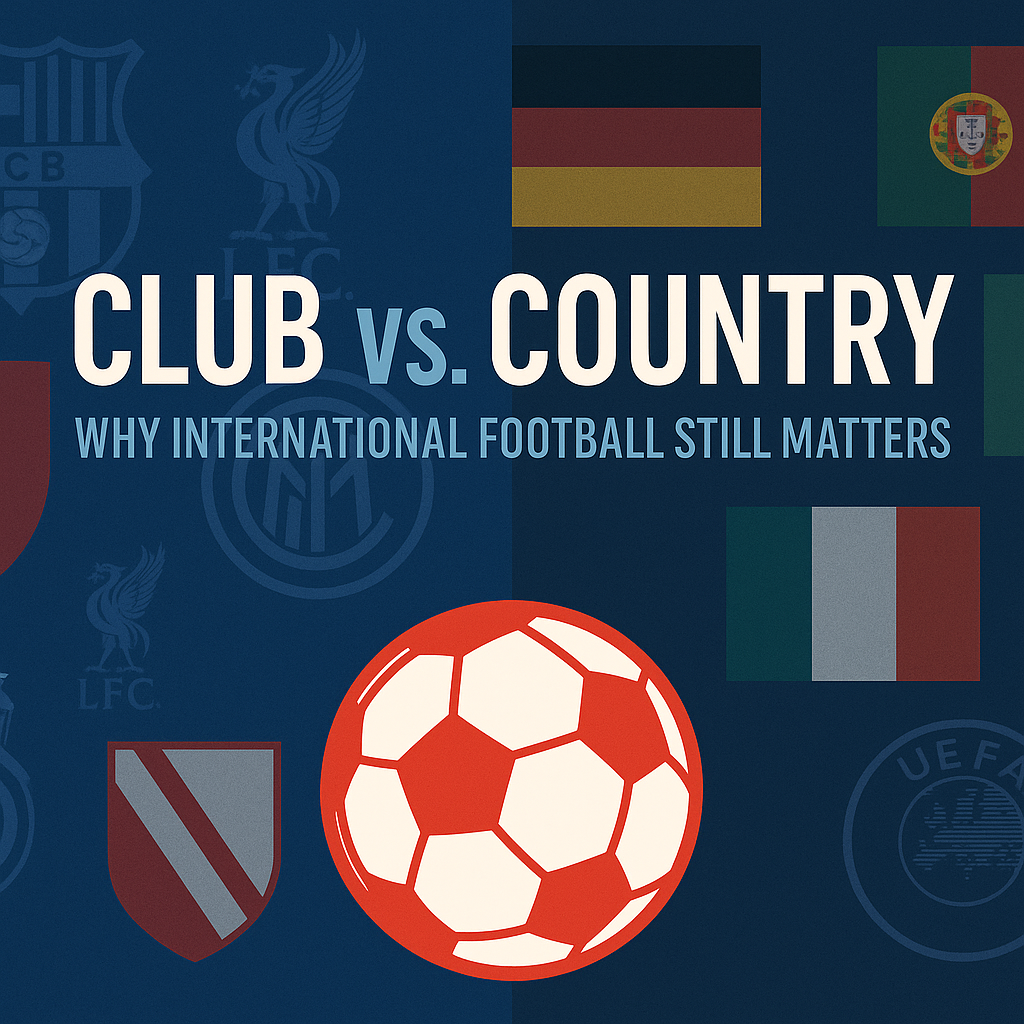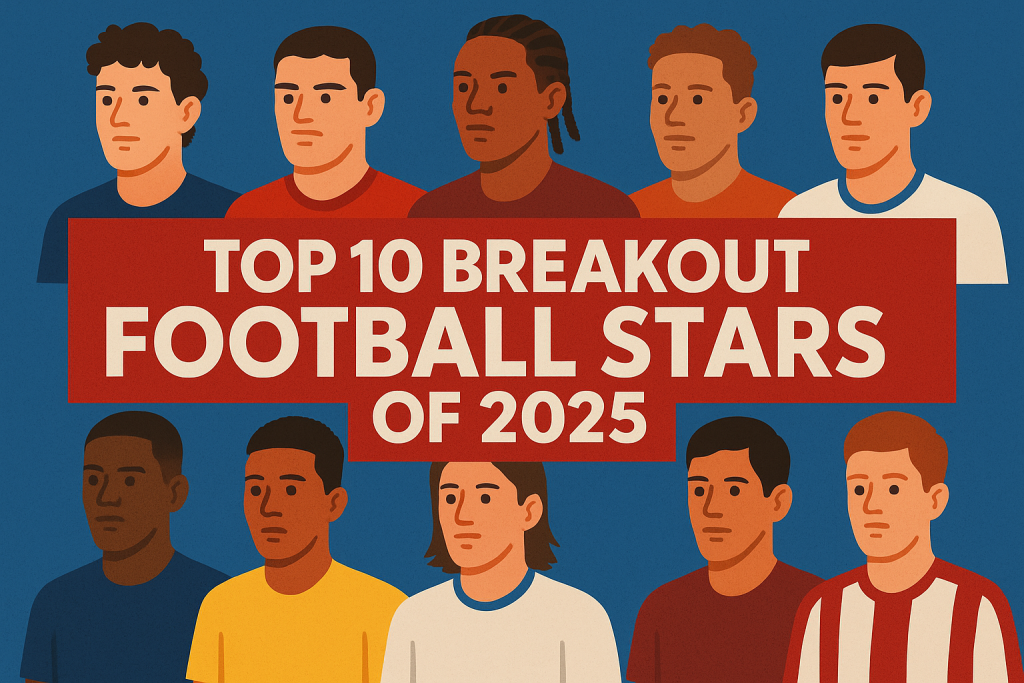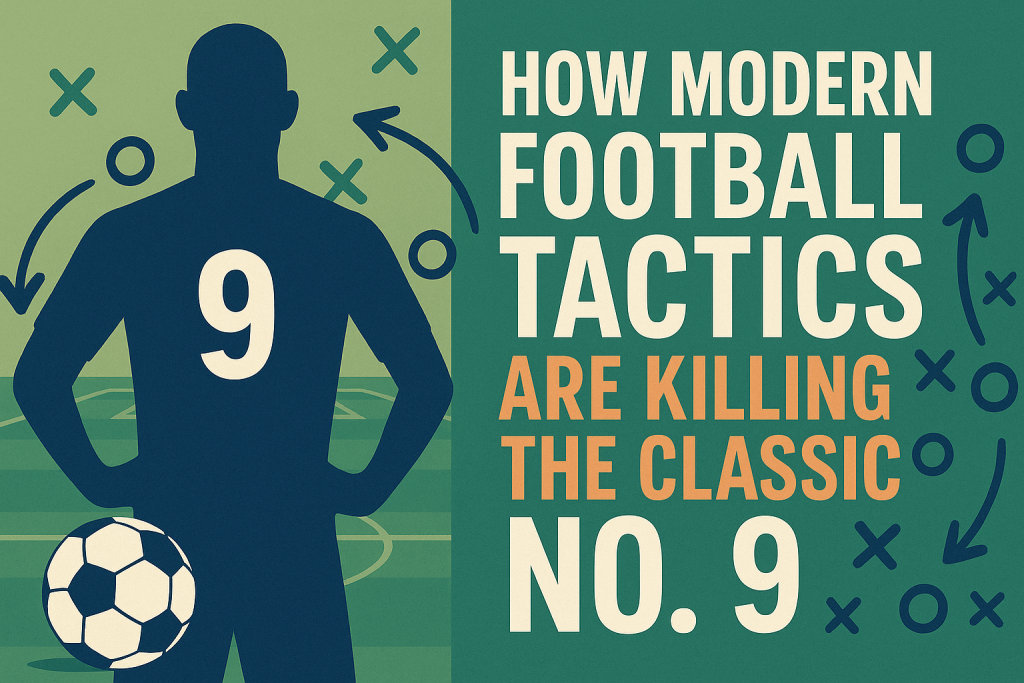⚽ Club vs. Country: Why International Football Still Matters

As club competitions dominate the football calendar, we explore why international football continues to hold cultural, emotional, and competitive significance.
Club football may dominate the headlines, but international football still matters. Here’s why country vs club remains one of football’s great debates.
Modern football has seen an undeniable shift toward club dominance. With billions in TV deals, packed fixture schedules, and transfer sagas making daily headlines, club football seems to eclipse national competitions in both frequency and intensity.
But beneath the glitz of the UEFA Champions League and the glamour of domestic rivalries, international football still pulses with passion, pride, and purpose. From World Cup qualifiers to continental championships, representing one’s country remains a pinnacle achievement — and a defining emotional moment for players and fans alike.
So in the era of UEFA vs FIFA, and rising tensions between national federations and clubs, we ask: does international football still matter?
Club vs. Country — The Tensions Explained
The Scheduling War
National teams disrupt the club calendar with international breaks multiple times a year. Clubs argue that overuse of players leads to fatigue and injury, with little benefit to the employers who pay their salaries.
Example: Managers like Jürgen Klopp and Pep Guardiola often voice concerns when key players return injured from international duty.
Financial Disparity
Top clubs offer world-class facilities, lucrative contracts, and constant global exposure. National teams can’t always match the infrastructure — and for some players, the difference is night and day. Still, most players dream of pulling on their country’s shirt.
🌍 Why International Football Still Resonates
National Pride is Unmatched
Representing your country taps into a deep emotional core that clubs can’t replicate. The anthem, the badge, the colors — these symbols unify a population in ways few club matches can.
Global Tournaments Transcend the Game
Events like the FIFA World Cup, EUROs, Copa América, and AFCON capture global attention far beyond typical football audiences. They provide a rare stage where lesser-known players become household names.
Example: Morocco’s historic run in the 2022 World Cup united an entire continent and global fanbase.
Legacy is Built on the International Stage
Legends like Pelé, Maradona, Zidane, and Ronaldo (Brazil) are remembered as much for their national team heroics as their club achievements. A World Cup trophy often cements greatness in a way club trophies can’t.
💥The Fan Perspective
Fans are divided. Club loyalists follow their teams year-round and build identities around club history. But even they often admit:
“There’s nothing like a World Cup summer.”
International tournaments generate:
- Community gatherings
- Flags in windows
- Cross-cultural conversations
Even casual fans tune in, making it a global cultural moment, not just a sporting one.
📣 UEFA vs FIFA – Power Struggles
With UEFA pushing for expanded club competitions (like the Super League concept) and FIFA looking to grow the World Cup (biennially proposed), the two bodies often clash over control.
At the center? The players — caught between money, loyalty, and legacy.
🏁 Conclusion: Club Form is Temporary, Country is Forever
While club football rules the week-to-week calendar, international football remains timeless. It’s rooted in emotion, identity, and legacy. As long as flags are flown and anthems are sung, country will always matter — even in a club-dominated world.







Responses